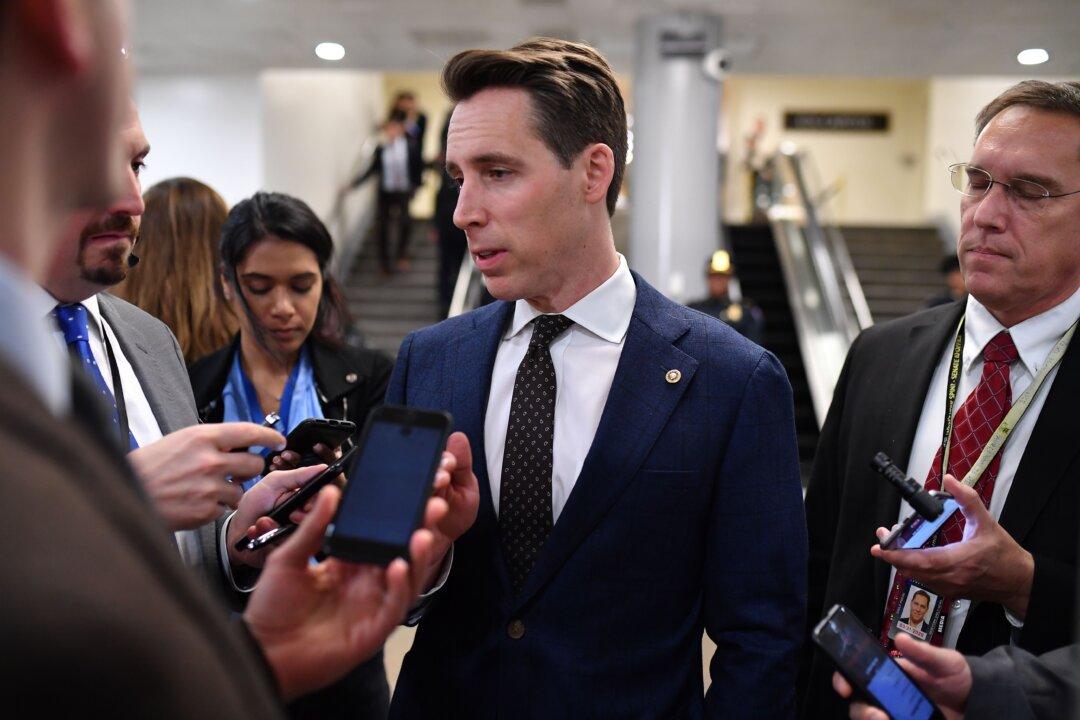Sen. Josh Hawley (R-Miss.) announced on Feb. 25 that he will be introducing new legislation aimed at making the U.S. medical supply chain less reliant on Chinese production.
“If the coronavirus crisis makes anything clear, it’s that we need to stop relying on China for our critical medical supply chains,” Hawley wrote on Twitter.




